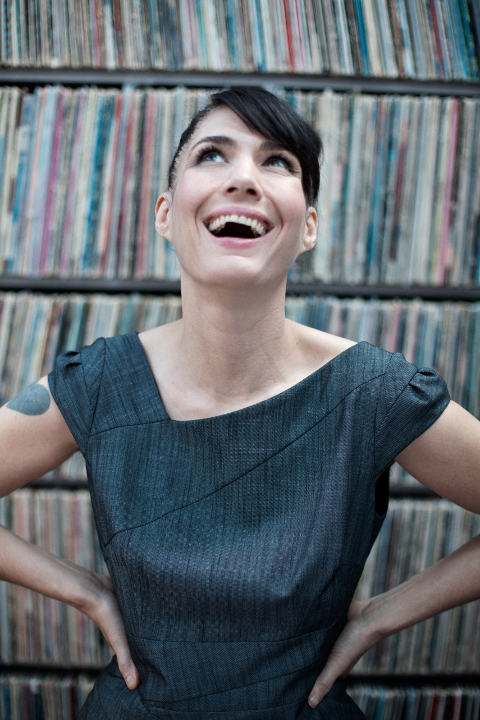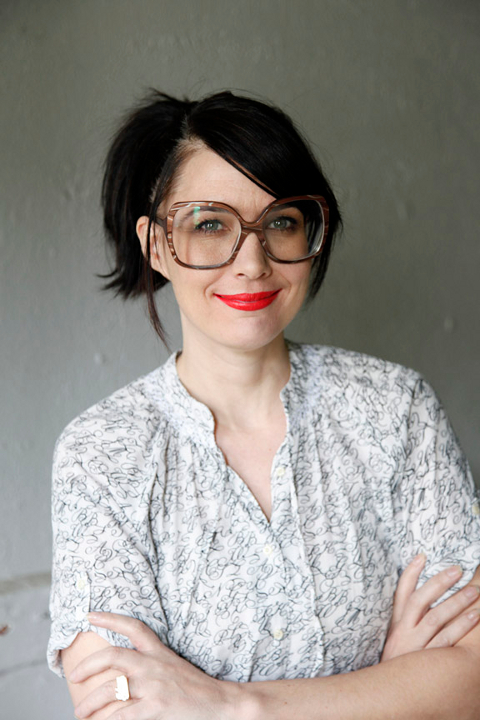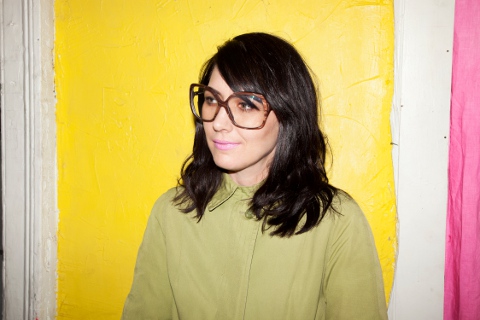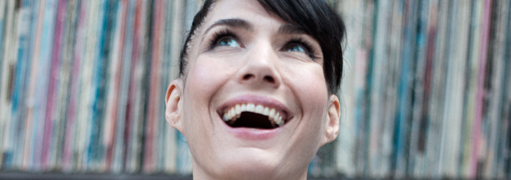My first time hearing Bikini Kill, Kathleen Hanna’s seminal group, reads like something from a young adult novel. It was 1995-ish, and I’d borrowed my friend Marie’s copy of Pussy Whipped, the 1993 album featuring raucous anthem “Rebel Girl.” The music acted as a skeleton key for my burgeoning teenage mind, opening doors to the worlds of zines, DIY culture and Riot Grrrl, a loose-knit network of Third Wave punk rock feminists that history now bills as a movement. Like Hanna’s voice, it was furious, shambolic, unapologetic and infectious to a certain sort of ear. By the time I started college, Bikini Kill had dissolved. Hanna made a bedroom record as Julie Ruin, then launched feminist electro-pop trio Le Tigre. The sound got glitchier, but the message remained, and I remained a loyal fan. Then 2006 rolled around: Le Tigre went on hiatus, and the always outspoken Hanna became uncharacteristically quiet. As a musician and contemporary feminist activist, Hanna has been shunned, but also lionized—so much so that during the opening scene of director Sini Anderson’s new biopic, The Punk Singer, many interviewees (including Kim Gordon, Joan Jett and Carrie Brownstein) remark on where Hanna has been hiding for nigh on a decade. “Why did she forsake us?” one young rocker asks, only half-joking.But here’s the thing: The most divine form of hero worship comes, paradoxically, when we fans accept, even embrace, that our idols have feet of clay. And that’s okay. They age. They disappear. They fall ill. Why? Because as much as we (and they) might wish them to be superhuman, they are instead as fallible and fragile as any of us. In Hanna’s case, that fragility was revealed with a diagnosis of late-stage Lyme disease. The Alibi spoke with the friendly, taking-it-one-day-at-a-time icon by phone about The Punk Singer, talk of a Riot Grrrl resurgence and her latest band The Julie Ruin. In The Punk Singer, an unflinching look at the evolution of its subject as an artist and a person, Hanna spoke about how there always seems to be “suspicion around a woman’s truth,” this constant negotiation of how she’s being seen. She seemed pleasantly surprised when asked how she feels about how she’s “being seen” through this film. “Whoa! No one’s ever asked me that one before, so you’re not gonna get a pat answer,” she replied with a laugh. “I’ve only sat in an audience and watched it on the big screen once. When I watched it, the thing that was hard for me was that there were so many pictures of my face. That was my main concern in terms of perception. But then I was kinda like, ‘Well, that’s what I look like.’ Any documentary is gonna have a bunch of pictures of the person. And there weren’t a lot of interviews with me when I was younger on camera, so there were all these still photographs in it, and it’s weird. I was just worried about not being taken seriously because of that. Then I thought, ‘Well, why is it that that matters?’ That’s something that society puts on us.” As someone who’s spent decades negotiating societal burdens and expectations, Hanna didn’t mince words when asked for her thoughts on Riot Grrrl—as it was in the ’90s, and what it could (or shouldn’t) be now. “In my mind, the idea of it being a ‘movement’ is kind of laughable, because it was really just a handful of feminists in different places who were operating in the underground music scene,” Hanna said. “Every different Riot Grrrl chapter—when there even was a chapter or meetings—had a completely independent identity from each other. So when people are like, ‘Well, I need to critique it in terms of race,’ let’s say, and it’s like, ‘Well, are you critiquing the New York Riot Grrrl, or are you critiquing the Minneapolis Riot Grrrl?’ They really were all different.“But when people talk about a ‘resurgence’ … it scares me a little bit, to be perfectly honest,” Hanna continued. “I was never someone who thought ‘Every Girl is a Riot Grrrl’ because every girl shouldn’t be a Riot Grrrl. Everybody should have their own way that they do their feminism or don’t do their feminism. It might depress me when the word ‘feminist’ gets a bad rap because I want it to open, I want it to include, I want it to change throughout time. And I feel the same way about Riot Grrrl.” So Ms. Hanna, creator of the zine from whence the movement-not-a-movement took its name, if not Riot Grrrl, then what? “I think what young women need today is a more intersectional feminism that’s more able to have productive discussions, that involves really heavy, angry disagreements and yet the ability to still work together,” she replied. “I don’t care if people call it Riot Grrrl. In a way, I hope they don’t, and that they come up with their own awesome catchy name!”Hanna’s new outfit The Julie Ruin sounds like the perfect progression from all of her previous bands: Bikini Kill, Julie Ruin solo and Le Tigre. When asked what makes the dynamic of The Julie Ruin different from her other bands, Hanna said, “I really wanted to work with live musicians again. So much of what Jo[hanna Fateman] and JD [Samson] and I did with Le Tigre was this intellectualized process, much more like making a fanzine than writing a song. And while we did make a live show and practice and stuff, and that felt like we were in a proper band to some extent, it’s such a different experience working with a live band because it can change. I wanted to change things from night to night when we play. That organic feel was what I was really missing. “Usually what people wanna talk to me about is Bikini Kill, Bikini Kill, Bikini Kill,” Hanna quickly added. “So thank you for asking about my new music. I appreciate it.” Speaking of her best-known band, Hanna was frank but effusive when asked how she feels about working again with Kathi Wilcox, bassist for Bikini Kill and The Julie Ruin. “Kathi and I have since both acknowledged this: Being in Bikini Kill was a really difficult thing,” Hanna said. “It was a tough band to be in for most of the time. Yes, we did have some really great fun sometimes. But you know, if you had a scale, the fun times would be a lot … lighter, let’s say, than the not-so-fun times. So in [The Julie Ruin], we’re actually having fun for the most part, for way more times than we’re not having fun. To be onstage and to look at my friend—who used to turn her back to the audience because she was so shy—to see her walk up to the mic now and sing harmonies with her, to watch her smile … It makes me wanna cry because this is what we’ve been waiting for. Like, we made it to the end of the video game, and this is our prize.”
The Punk Singer: A Film About Kathleen Hanna (NR, 80 minutes)Thursday, Jan. 23, to Sunday, Jan. 26, 4 and 8pmGuild Cinema3405 Central NE$8 general, $5 seniors 60-plus, kids 12 and under, students with valid IDthepunksinger.comguildcinema.com












